Medically reviewed by Dr. Ramesh Gaddam, M.D. — Written by Sumalatha, D.N.H.E
Table of Contents
ToggleGallbladder issues can cause discomfort and health problems, making it crucial to choose the right foods. Certain foods can trigger symptoms or worsen your condition. By avoiding these, you can help manage your health better and reduce discomfort.
This guide highlights 15 foods that are best avoided if you have gallbladder issues, helping you make informed choices and maintain better digestive health.
Let’s explore which foods to steer clear of to support your gallbladder.
1. Fatty Cuts of Meat
Fatty cuts of meat can be tough on your gallbladder.
They are high in saturated fats, which can lead to gallbladder attacks and discomfort.
Foods like pork belly, ribeye steak, and lamb chops are especially high in these unhealthy fats.
Instead, opt for leaner meats, such as chicken breast or turkey, which are easier on your digestive system.
Choosing lower-fat options can help manage symptoms and keep your gallbladder healthy.
2. Fried Foods
Fried foods are often loaded with unhealthy fats and oils that can aggravate gallbladder problems.
Foods like fried chicken, french fries, and doughnuts are particularly troublesome because they contain high levels of saturated and trans fats.
These fats can trigger gallbladder attacks and worsen symptoms. Instead of fried options, try baking, grilling, or steaming your food.
These cooking methods use less oil and are gentler on your gallbladder.
3. Full-Fat Dairy Products
Full-fat dairy products can be hard on your gallbladder due to their high levels of saturated fats and cholesterol.
Items like whole milk, full-fat cheese, and butter can contribute to gallstone formation and digestive discomfort.
To ease gallbladder symptoms, choose lower-fat dairy options, such as skim milk or low-fat cheese.
These alternatives have less fat and cholesterol, making them gentler on your digestive system while still providing necessary nutrients.
4. Processed Meats
Processed meats often contain unhealthy fats and preservatives that can irritate your gallbladder.
Foods like sausages, bacon, and pepperoni are particularly high in these harmful fats, which can lead to gallbladder discomfort and worsen symptoms.
Instead, opt for fresh, unprocessed meats or plant-based protein sources.
These choices are typically lower in fat and easier on your digestive system, helping to keep your gallbladder health in check.
5. High-Sugar Foods
High-sugar foods can be problematic for gallbladder health. Excessive sugar intake can lead to weight gain, which may increase the risk of gallbladder issues.
Foods like candy, pastries, and sugary drinks are especially high in sugar and can worsen symptoms.
To support your gallbladder, choose snacks and desserts with lower sugar content, such as fresh fruit or yogurt.
These options are better for maintaining a healthy weight and managing gallbladder symptoms.
6. White Bread and Pastries
White bread and pastries are low in fiber and high in refined carbohydrates, which can aggravate gallbladder issues.
Foods like white bread, croissants, and doughnuts can cause digestive discomfort and exacerbate symptoms.
Instead, opt for whole-grain breads and baked goods.
These alternatives are higher in fiber and help regulate digestion, reducing the strain on your gallbladder and supporting overall digestive health.
7. High-Fat Snack Foods
High-fat snack foods can be hard on your gallbladder due to their unhealthy fat content.
Snacks like potato chips, cheese puffs, and pretzels often contain trans fats and excessive oils, which can trigger gallbladder discomfort.
To avoid these issues, choose healthier snack options such as fresh fruits, vegetables with hummus, or air-popped popcorn.
These alternatives are lower in fat and gentler on your digestive system.
8. Certain Vegetables
Some vegetables can cause discomfort for people with gallbladder issues due to their high fiber content or specific properties.
Vegetables like corn, cabbage, and broccoli might be tough to digest and could exacerbate symptoms.
Instead, opt for vegetables that are easier on the digestive system, such as carrots, spinach, or zucchini.
These options provide essential nutrients while being gentler on your gallbladder.
9. Spicy Foods
Spicy foods can irritate the digestive system and exacerbate gallbladder issues.
Hot peppers, spicy sauces, and curries can trigger discomfort and gallbladder attacks.
To manage symptoms, avoid heavily spiced dishes and opt for milder flavors.
Choosing bland or gently seasoned foods can help reduce irritation and keep your gallbladder functioning smoothly, leading to better overall digestive comfort.
10. Caffeinated Beverages
Caffeinated beverages, such as coffee, energy drinks, and strong teas, can increase bile production and potentially trigger gallbladder discomfort.
The caffeine in these drinks can stimulate the gallbladder, leading to symptoms or aggravating existing issues.
To support your gallbladder health, consider reducing your caffeine intake or switching to caffeine-free alternatives like herbal teas.
These options are less likely to irritate your digestive system and can help you maintain better gallbladder function.
11. Alcohol
Alcohol can interfere with gallbladder function and contribute to inflammation.
Drinking beer, wine, or spirits can aggravate gallbladder issues and may lead to more severe symptoms.
To support your gallbladder health, it’s best to limit or avoid alcohol entirely.
Choosing non-alcoholic beverages or water can help reduce the strain on your gallbladder and promote better digestive health.
12. High-Cholesterol Foods
High-cholesterol foods can contribute to gallstone formation and worsen gallbladder issues.
Foods like egg yolks, shellfish, and liver are particularly high in cholesterol and can lead to digestive discomfort.
To support your gallbladder, opt for foods lower in cholesterol, such as lean poultry, beans, and vegetables.
These choices help manage cholesterol levels and reduce the risk of gallbladder problems.
13. Artificial Sweeteners

Artificial sweeteners, like aspartame, sucralose, and saccharin, can cause digestive issues and may affect gallbladder health.
These sweeteners can sometimes lead to bloating and discomfort, which may worsen gallbladder symptoms.
To avoid potential problems, opt for natural sweeteners in moderation, such as honey or maple syrup, or choose foods with minimal added sugars.
This approach helps maintain digestive comfort while satisfying your sweet tooth.
14. High-Sodium Foods
High-sodium foods can contribute to fluid retention and may worsen gallbladder symptoms.
Foods like canned soups, salted snacks, and processed foods are often high in sodium and can increase discomfort.
To support your gallbladder health, choose low-sodium alternatives and opt for fresh, unprocessed foods.
Reducing your salt intake can help alleviate symptoms and promote overall digestive wellness.
15. Carbonated Beverages
Carbonated beverages, including soda and sparkling water, can cause bloating and discomfort, which may affect your gallbladder.
The bubbles in these drinks can lead to gas buildup and aggravate gallbladder symptoms.
To avoid these issues, choose non-carbonated drinks such as water, herbal teas, or diluted fruit juices.
These alternatives are less likely to irritate your digestive system and can help you maintain better gallbladder health.
Key Takeaways
Avoiding certain foods can significantly help manage gallbladder issues and reduce discomfort.
High-fat, fried, and processed foods, along with items high in sugar and cholesterol, can exacerbate symptoms.
Opt for lean proteins, whole grains, and fresh, unprocessed foods to support your gallbladder health.
Reducing or eliminating caffeine, alcohol, and high-sodium or carbonated beverages can also be beneficial.
Making these dietary adjustments can improve your digestive comfort and overall well-being.
When to See a Doctor?
If you experience persistent or severe symptoms related to your gallbladder, such as intense abdominal pain, nausea, or vomiting, it’s important to consult a healthcare professional.
Seek medical advice if you notice any changes in your symptoms or if over-the-counter remedies and dietary changes do not provide relief.
A doctor can provide a proper diagnosis, recommend appropriate treatments, and help you manage your condition effectively.
Early intervention can prevent complications and improve your overall health.
Bottom Line
Managing gallbladder health involves making careful dietary choices to avoid foods that can trigger or worsen symptoms.
By steering clear of high-fat, fried, and sugary foods, and opting for healthier alternatives, you can support your gallbladder and improve your digestive comfort.
Remember to listen to your body and consult with a healthcare professional if you experience ongoing issues.
Making these dietary adjustments can lead to better health and a more comfortable lifestyle.
Frequently Asked Questions (FAQs)
What foods are really bad for gallbladder?
Foods high in fat and cholesterol, such as fried foods, fatty meats, and full-fat dairy products, are particularly bad for the gallbladder. Processed meats, sugary snacks, and high-sodium foods can also irritate the gallbladder and worsen symptoms.
What is a good breakfast for gallbladder problems?
A good breakfast for gallbladder problems includes low-fat and easily digestible foods. Try options like oatmeal with fresh fruit, a smoothie with leafy greens and berries, or whole-grain toast with a small amount of lean protein, like turkey or eggs.
Are bananas bad for gallbladder?
No, bananas are not bad for the gallbladder. They are gentle on the digestive system and can be a good choice for those with gallbladder issues. They provide important nutrients and are easy to digest.
What foods cleanse the gallbladder?
Foods that support gallbladder health include high-fiber vegetables, fruits, whole grains, and lean proteins. Foods like apples, spinach, and lentils can help promote good digestion and support gallbladder function.
Can I eat rice with gallstones?
Yes, rice is generally safe to eat with gallstones. Opt for brown rice or other whole grains as they are high in fiber and can aid digestion. Avoid adding high-fat sauces or toppings that might irritate the gallbladder.
What food melts gallstones?
No specific food can melt gallstones, but a diet high in fiber and low in unhealthy fats can help manage symptoms and prevent the formation of new gallstones. Staying hydrated and maintaining a healthy weight are also important.
Is curd good for gallstones?
Curd, or yogurt, can be a good option for gallstones if it is low in fat. It provides beneficial probiotics that support digestion. Opt for plain, low-fat curd to avoid excess fats that might aggravate symptoms.
What stops gallstone attacks?
To help prevent gallstone attacks, avoid high-fat and greasy foods, maintain a healthy weight, and eat smaller, more frequent meals. Staying hydrated and consuming a balanced diet rich in fiber can also be beneficial.
What drink is best for gallstones?
Water is the best drink for gallstones as it helps keep the digestive system functioning smoothly. Herbal teas like peppermint or ginger tea can also be soothing and may help with digestion.
What fruit is good for gallstones?
Fruits high in fiber and antioxidants, such as apples, pears, and berries, are good for gallstones. These fruits support digestion and may help manage symptoms.
What is the fastest way to dissolve gallstones?
There is no quick way to dissolve gallstones. Treatments such as medications prescribed by a doctor or surgical options may be necessary. Eating a healthy diet and staying hydrated can help manage and prevent symptoms.
What exercise is good for gallstones?
Regular, moderate exercise is beneficial for gallbladder health. Activities like walking, cycling, and swimming can help with digestion and maintain a healthy weight, which may reduce the risk of gallstones.
Does walking reduce gallstones?
Walking can help reduce the risk of developing gallstones by aiding digestion and supporting a healthy weight. Regular physical activity is an important part of managing gallbladder health.
What is the home remedy for gallstone pain?
For gallstone pain relief, try drinking plenty of water and applying a warm compress to the affected area. Eating a low-fat diet and avoiding trigger foods can also help manage discomfort.
How to sleep with gallbladder pain?
To sleep more comfortably with gallbladder pain, try lying on your left side or propping yourself up with pillows. Avoid eating heavy meals close to bedtime, and use a warm compress to ease discomfort.
Do gallstones cause gas?
Yes, gallstones can cause gas and bloating as they can affect the digestive system. Managing your diet and avoiding foods that trigger symptoms can help reduce gas and discomfort.
Can warm water help gallstones?
Warm water can help alleviate some discomfort caused by gallstones. It can relax the digestive system and may help soothe pain. However, it is not a treatment for dissolving gallstones.
What are the symptoms of passing a gallstone?
Symptoms of passing a gallstone can include severe abdominal pain, nausea, vomiting, and pain in the right shoulder or back. Some people may also experience fever or jaundice.
Can gallstones go away without surgery?
In some cases, small gallstones may go away on their own, especially if they do not cause symptoms. However, larger or symptomatic gallstones often require medical treatment or surgery.
What are the bad symptoms of a bad gallbladder?
Symptoms of a problematic gallbladder can include persistent abdominal pain, nausea, vomiting, fever, jaundice (yellowing of the skin and eyes), and digestive issues. If you experience these symptoms, seek medical advice.
What size of gallbladder stones need surgery?
Surgery is often considered for gallstones that are large (typically larger than 2-3 cm), cause frequent pain or complications, or do not respond to other treatments. A doctor will assess the need for surgery based on individual cases.
Also Read:
Metformin: 8 Specific Foods to avoid while taking Metformin
Medically reviewed by Dr. Ramesh Gaddam, M.D.

General Physician, Diabetologist, and Critical Care Specialist.
Related
Discover more from Health Build-Up
Subscribe to get the latest posts sent to your email.
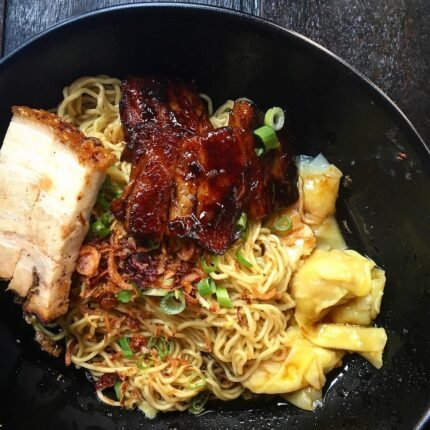
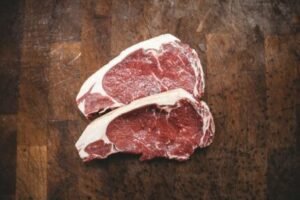
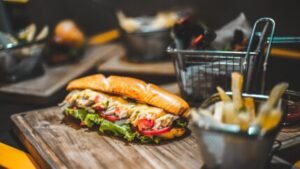
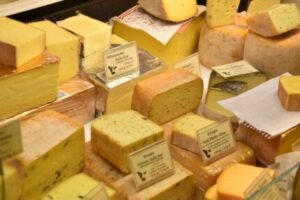
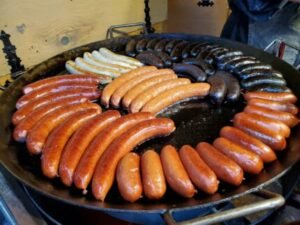
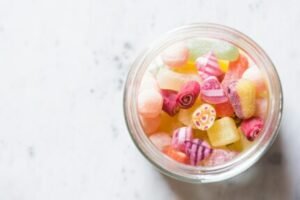


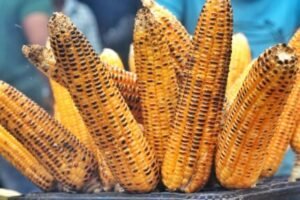



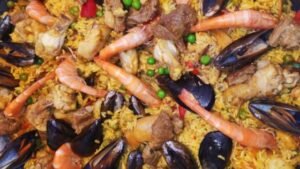
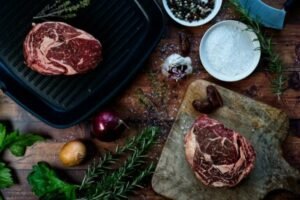
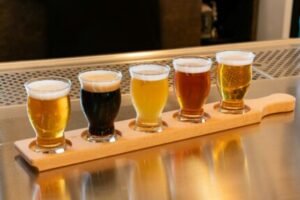
1 thought on “15 Foods to Avoid with Gallbladder Issues (Gallstones)”
Comments are closed.